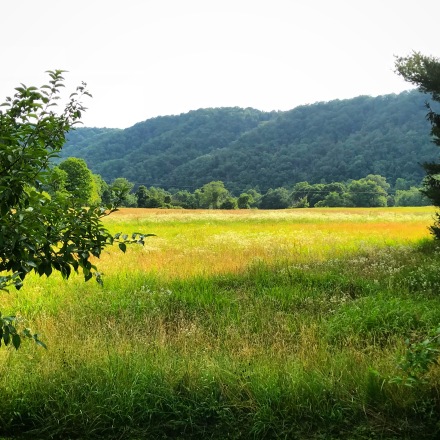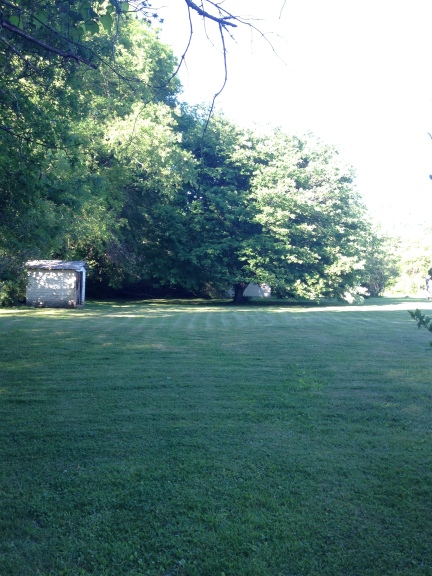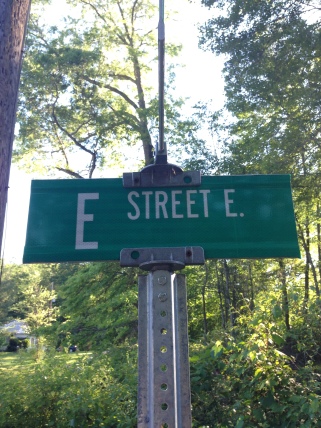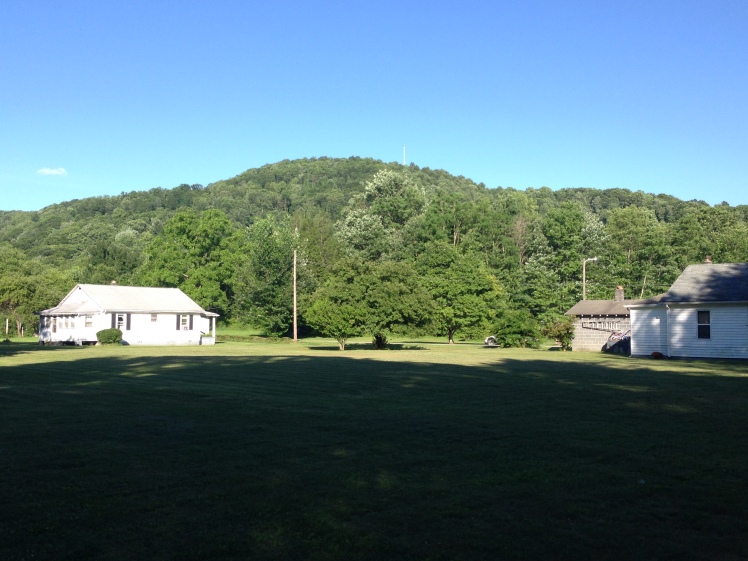“Our place is part of what we are.” Gary Snyder
I’m reading ‘The Practice of the Wild’ by Gary Snyder. It’s been on my list for some years now, and in my very large TBR (and ever-growing) stack. His words are making me think about our landscapes and how they help shape the narratives of our lives. And also conversely, how our narratives shape the landscape.
He writes:
“Narratives are one sort of trace that we leave in the world.” Gary Snyder

I often equate “my landscape” with the mountainous region that I grew up in. So much of what we feel and experience is shaped in early childhood and carries over into adulthood. I will never forget the woods and waters around my childhood home where I spent hours outside learning the names of plants, climbing trees, looking for mushrooms, digging for treasure, chasing lightning bugs, and scooping up tadpoles so I could feel how cold their slimy skin was even in the sun-warmed mud puddles. Rolling down hills of freshly mown grass until I was dizzy, then smelling that green aroma still on my clothes and skin and hair at the end of a never-ending summer day, this I remember.
Nature was, and still is, my place of grounding and solace.
“The childhood landscape is learned on foot, and a map is inscribed in the mind– trails and pathways and groves- the mean dog, the cranky old man’s house, the pasture with a bull in it – going out wider and farther. All of us carry within us a picture of the terrain that was learned roughly between the ages of six and nine.… You can almost totally recall the place you walked, played, bike, swam. Revisualizing that place with its smells and textures, walking through it again in your imagination, has a grounding and settling effect. As a contemporary thought we might also wonder how it is for those whose childhood landscape was being ripped up by bulldozers, or his family moving about made it all a blur.”
~ Gary Snyder
I walk through that landscape in my mind quite often. I see the apple trees that bore small, tart fruit. I see my mom collecting the apples, boiling them into a thick, sugary butter. I smell the wafting cinnamon oil so strong that it burns my eyes even today as I think about it.

That’s one narrative I’ll leave in the world. But I have another, and that’s the narrative I am working on now, in this place. They’re connected, of course. They’re mine, and only mine. In a way, I’ve lived many lives, all in this one lifetime. I think each of us has. And hopefully there will be more narratives, more years, more lives to come.

“And all the lives we ever lived and all the lives to be are full of trees
and changing leaves.” ~ Virginia Woolf
Photos taken by me of my childhood home and surrounding area. The street I grew up on didn’t have a name until I had already left home thirty-two years ago. It is now E Street. My sister still lives there in the home we grew up in.
Ah, you describe this so well I feel I could have been your childhood friend.
LikeLiked by 1 person
Thanks, writegardener:)
LikeLike
You describe your landscapes beautifully Cheryl. I see the landscape as full of layers – of who we were, are, will be, along with the history and narratives that are other people’s experience of it. I’ve got Gary Snyder’s book on my kindle to read, but I think I might promote it higher up the TBR list!
LikeLiked by 1 person
Thank you so much, Andrea. It really is a thoughtful book.
LikeLiked by 1 person
West Virginia! No wonder the look and sound of your childhood feel so familiar. I am from western PA (which has so many similar physical characteristics), and we spent a decent amount of time in WV, partly because my dad worked for a few years in Charleston (although we did not move there) and partly because we escaped to Cheat Lake in Morgantown on the weekends. I was home for the last two weeks and even though the route is longer and much more twisty-turny, I drove back to Texas via WV, stopping at Tamarack, gaping for the umpteenth time at the New River Gorge, peering down into all those hollers, and smiling all the way up and down those green hills.
I will look up Gary Snyder. My original landscape is so deeply rooted in me that it hurts sometimes. Maybe the biggest hurt is that I crave it, and love it when I go home, but I don’t think I could ever really live there again. If I remember correctly, you are in NC now, so at least some of your scenery is similar, right? Not the same as one’s original place no matter the flora and geology, but reminiscent at least?
LikeLiked by 1 person
Oh my goodness. You voiced my thoughts exactly: “My original landscape is so deeply rooted in me that it hurts sometimes. Maybe the biggest hurt is that I crave it, and love it when I go home, but I don’t think I could ever really live there again.”
I do believe that’s one reason that I get to the North Carolina mountains as often as possible. It feels like home, and probably better. I love where I live, but I wouldn’t mind stepping away from the traffic, lights, and concrete one of these days. I’ll always stay in NC.
LikeLiked by 1 person
Evocative! Nothing brings the past alive so clearly as a remembered scent.
LikeLiked by 1 person
You are right! For me it is kitchen and nature smells. I am instantly taken back with basil, fresh cut grass, and cinnamon.
LikeLiked by 1 person
Your ideas about our childhood landscapes are profound. Mine was nowhere near as beautiful as yours but it provides memories that are part of me
LikeLiked by 1 person
Thanks, Derrick. It’s kind of funny how much those few short years really do stay with us forever and how easily many childhood memories are recalled (as opposed to last year, last week, etc:) ).
LikeLiked by 1 person
Quite so 🙂
LikeLike
Your description takes me with you back in time. I love the dual nature of reading this: I am with you in your childhood neighborhood and in my own, as well! I had a poem accepted to Diane Lockward’s forthcoming book, The Practical Poet, that this also makes me think of. I visited my old house and then wrote a poem based on the now and the then. Your pictures show the now and your description the then.
LikeLiked by 1 person
Oh Luanne, I love that! I kinda got chill bumps thinking about how reading stories of other’s lives lets us experience a (kinda) dual reality—the life we’re reading and our own at the same time. Childhood is childhood. Each different but with many parallel experiences. I love reading childhood stories and memories. Congrats on the poem! I will have to check that book out. Your poetry truly speaks to me.
LikeLiked by 1 person
Thank you so much, Cheryl. You are so kind. I am starting to think that that is what memoir does to us. We read it as the writer herself and as ourselves, living both lives at once and where they intersect we have special epiphanies (or something akin to that).
LikeLiked by 1 person
Yes, and I think memoir also helps us to “walk a mile in someone else’s shoes.” That’s always an awakening moment.
LikeLiked by 1 person
Absolutely.
LikeLiked by 1 person
And you grew up in such a beautiful place!
LikeLiked by 1 person
Truly, truly beautiful. I feel lucky to have grown up in West Virginia in the 70’s and early 80’s. My tiny town has changed so much now. I have, too. The first picture of the grassy field surrounded by mountains is of my cousin’s neighboring lot in the next county over. What you can’t see in this picture is the large machinery and equipment poised right at the edge to continue work on the Mountain Valley Pipeline. A gas pipeline going through all of that beautiful untouched land. Breaks my heart. The residents are fighting it. I hope they win.
LikeLiked by 1 person
What comes to mind is time, both time that seems to listen to us and time that seems to listen to no one. Change can be so hard to accept, can’t it. I hope that the gas pipeline is stopped and that that beautiful untouched land remains as it is.
LikeLiked by 1 person
Yes, it can. Thank you.
LikeLiked by 1 person
I love this and it is perfectly timed for me. I just won a small battle with some tree trimmers our city hired. I had very little faith that they would listen to me plead to save the big sugar maple tree in front of our house. But, they did! You translate your childhood memories so well, I can taste that apple butter. Thanks for a beautiful read.
LikeLiked by 1 person
Thanks so much, and hurray for saving the tree! I’m reading about clearcutting the Pacific North West in Snyder’s book. What a shame that some cannot (will not) understand the importance of trees. You are my hero!
LikeLike
This is lovely Cheryl! I have not heard of Gary Snyder – now I must look him up! I have patchy memories of those early years, but most of what I can recall is of me up trees or being deep in our ‘bush’ (rain forest) Nature has always been my solace!
LikeLiked by 1 person
Thank you, Pauline, my kindred spirit friend. 💕 Let me know what you think of Snyder if/when you read him. The book I quote from here is profound. And timely, as our wilderness areas and wildlife are constantly being threatened. It’s disheartening, but I’m not about to give up. Thanks for reading.
LikeLiked by 1 person
I also feel that my childhood landscape is what I can root the rest of me in. Sometimes I neglect those memories and it leaves me feeling insecure.
LikeLiked by 1 person
I understand that feeling. Memories are a tricky thing. They can either help us feel stable and grounded, or sometimes they leave us feeling unsure and off balance. I wobble between the two–a lot. Thanks for your comment:)
LikeLike
I relate very much to what you have written. I also relate very much to the photos of where you grew up. Thank you for sharing them. The photos remind me of a cabin on a river a couple of hours from Seattle where my father’s parents had a small cabin where we spent weekends until floods ruined everything and they sold. I was twelve when they sold the cabin, and I never felt that I was able to say goodbye to the place properly. So I went back, after it had been sold, several times, just to look from a distance. Finally, probably 20 years after the cabin was sold, I was able to experience the loss I had felt all along. I have not read Gary Snyder. I will have to look him up. This sentence in particular I know will stay with me: “I walk through that landscape in my mind quite often.”
LikeLiked by 1 person
Thanks so much for reading and sharing your thoughts. I do think that much of the loss we often feel with leaving places is that we didn’t get to experience a proper goodbye. I guess this may be true of leaving/losing people, as well. I also think, perhaps, it affects some of us more than others. Or that we think about it more than others. I think you will like Gary Snyder. He is from the Pacific Northwest: Seattle, Oregon, and also lived in San Francisco. He is a poet, deep ecologist, naturalist, and darn good writer. His writing makes sense to me. He writes a lot about Native Americans and Turtle Island. There is also a thread of Buddhist thought that weaves through his poetry and words. Let me know what you think of his work. Thanks, again, friend.
LikeLiked by 1 person
Thank you. Your comments have created more for me to think about it. I do know of Gary Snyder, and now that I stop to think about it, I am surprised that I have never read him. I will definitely let you know what I think of his work.
LikeLiked by 1 person